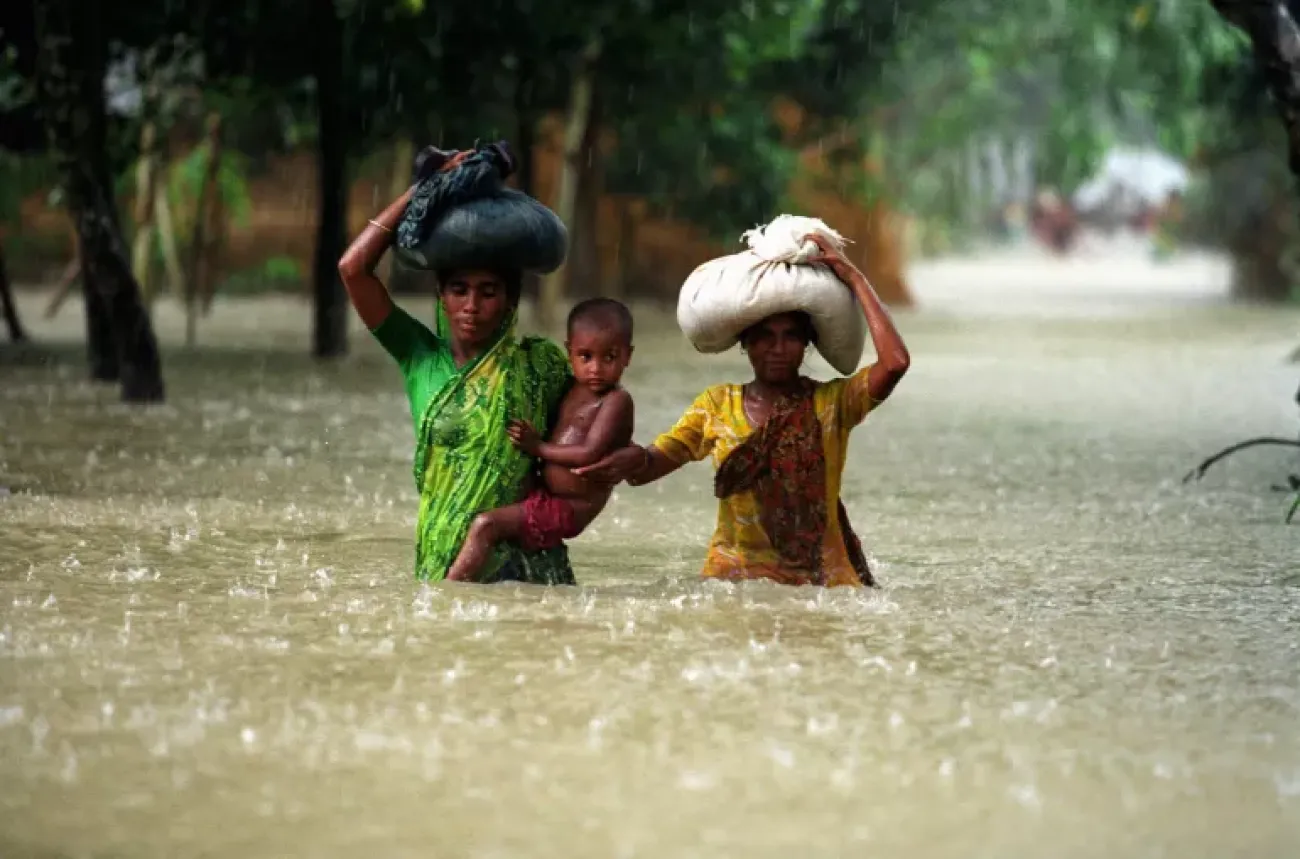Government and Humanitarian Partners Recommit to Strengthening Disaster Risk Management in Bangladesh

22 April 2024, Dhaka
Over sixty-five representatives of Government agencies, UN organizations, development partners, international and local civil society organizations convened in Dhaka today to discuss how to strengthen coordination to protect the lives and livelihoods of vulnerable populations before, during and after natural disasters and climate-related crises.
In 2023 alone, Bangladesh witnessed a surge in natural hazards and extreme weather events, including three cyclones—Mocha, Hamoon, and Midhili—as well as devastating floods and landslides in the Chattogram region. Cyclone Mocha affected 779,535 people, Cyclone Hamoon affected over 1.5 million people, and Cyclone Midhili affected more than 215,000 people across Bangladesh. Flash floods and landslides triggered by heavy monsoon rains lashed the Chattogram Division, affecting over 1.3 million people.
Today’s special meeting of the Humanitarian Coordination Task Team (HCTT) provided an opportunity for members to discuss the crucial role of all partners in responding to crises and mitigating disaster risks.
Established in 2012, the HCTT serves as Bangladesh's humanitarian cluster system, facilitating coordination between Government agencies and international partners in emergency response efforts. Comprising ten clusters, six working groups, and one Inter-cluster Coordination Group (ICCG), the HCTT aligns emergency responses with national disaster management strategies.
The meeting was co-chaired by Mr. Md. Kamrul Hasan, ndc, Secretary of the Ministry of Disaster Management and Relief (MoDMR) and Ms. Gwyn Lewis, United Nations Resident Coordinator for Bangladesh.
Chief Guest, Mr. Md. Kamrul Hasan, Secretary of MoDMR and HCTT Co-chair, reiterated the Government’s commitment to disaster risk management as a national priority. He acknowledged the significant successes in reducing disaster mortality rates and credited initiatives like the cyclone preparedness program, early warning systems, anticipatory action, and community preparedness programmes.
Special guest Mr. Md. Mijanur Rahman, Director General, Department of Disaster Management, emphasized the importance of the HCTT as a platform to strengthen collaboration and coordination between the Government of Bangladesh and humanitarian partners, under the HCTT Nexus Strategy (2022-2025) and plans for 2024.
In her opening remarks, Ms. Lewis highlighted the crucial role of the HCTT as a platform to strengthen Government-led disaster preparedness and response initiatives.
“Collaborative efforts undertaken in 2023 - including mobilizing resources for the Chattogram flash floods and supporting the Government's anticipatory approach to climate risks - exemplify the UN’s commitment to respond urgently and cohesively, in tune with the needs of the affected populations. The UN works to improve the capacity of responders at the district level and empower communities to build greater resilience against the impacts of natural disasters,” said Ms. Lewis.
The special HCTT meeting concluded with a renewed commitment from all stakeholders to strengthen coordination and enhance disaster risk management efforts in Bangladesh.
For more information and media enquiries, please contact:
Anahita Ahmed, Public Information Officer, UNIC
United Nations Resident Coordinator's Office
anahita.ahmed@un.org; +8801302700765






